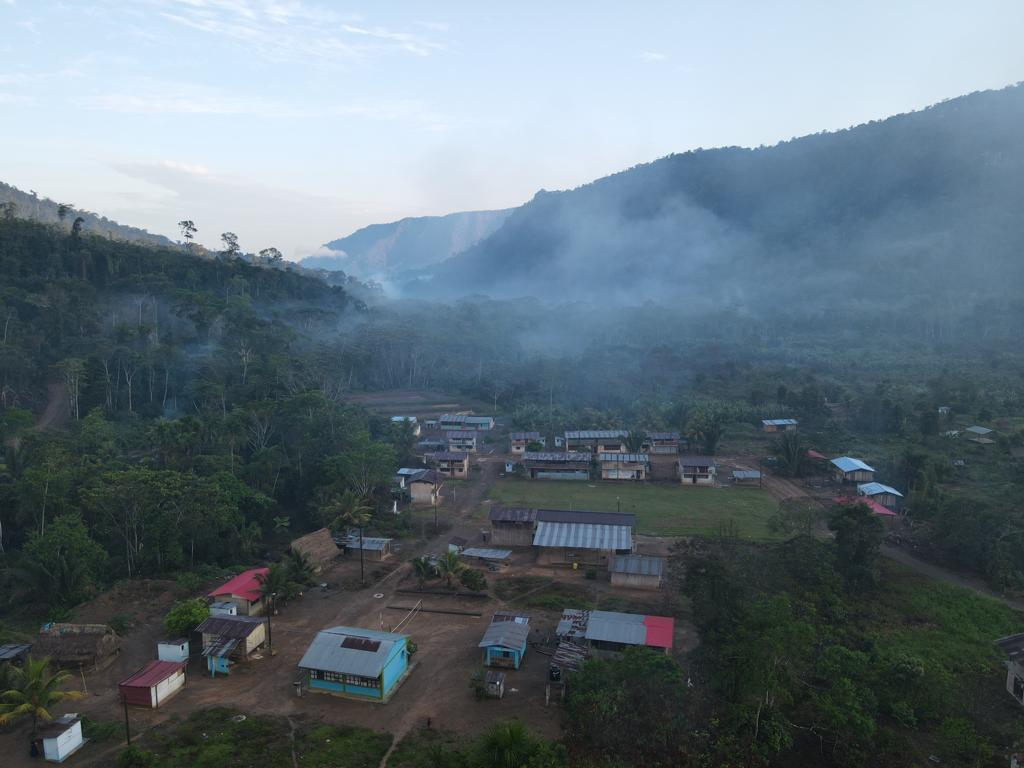
In recent weeks, spaces and reflections have been held at a global level on issues of energy transition, climate change, environmental management and human rights, where the international community made various commitments.
During the Climate Week held in New York from September 16 to 20, within the framework of the United Nations General Assembly, topics on carbon markets and climate financing were addressed, as well as the importance of environmental defenders as primary actors in forest protection to achieve commitments and initiatives to combat climate change. Thus, a possible alliance of countries, donors and global NGOs was launched for the protection of these people and groups, we will have to wait for it to materialize.
Despite the participation and speech of the Peruvian Government, it was evident that this agenda is not a priority, despite the increase in violence, harassment and murders in the Amazon. Likewise, an active role of the State is still needed in the supervision of carbon and climate financing projects, as well as effective compliance with safeguards in the territories of the communities through legislation that includes sanctions for bad practices in coordination with the initiatives. of indigenous surveillance and control, participation and consultation processes, transparency mechanisms and access to information, and direct access to funds by indigenous organizations.
Subsequently, from September 26 to 28, the II Regional Forum on Environmental Defenders was held in Panama within the framework of the Escazú Agreement, one of the main objectives being to be able to discuss and include recommendations within the formulation of the regional action plan on environmental defenders that allow the effective implementation of article 9 of the Escazú Agreement, focused on the protection of these people. The main proposals were about carrying out a diagnosis with information from the territories themselves, identifying and recognizing indigenous self-protection initiatives, strengthening the capacities of the different actors in terms of protection and defense, implementing a regional early warning system to alert cases and prevent attacks, allocate a regional emergency fund to environmental defenders, their families and representative organizations, include clear supervision indicators. The indigenous peoples demanded to have a direct participation mechanism to guarantee the intercultural approach in the governance bodies within the Agreement, as exists in other international processes.
On the other hand, from October 10 to 12 in Santiago de Chile, the Regional Business and Rights Forum was held where one of the central topics was the environmental axis and the Escazú Agreement, to clarify the connections and challenges between the obligations of States to protect and respect human rights and the responsibilities of companies; access to environmental justice and effective redress mechanisms for affected communities and people such as resource mobilization and recognition of extraterritorial jurisdiction over social and environmental impacts. The interesting thing about this space is that a declaration was achieved from the Indigenous Caucus and from the preparatory forum of civil society on the importance of the ratification of the Escazú Agreement by the most dangerous countries for defenders such as Brazil, Colombia, Honduras , Guatemala, Peru, and how urgent its implementation becomes at the national and regional level, since the rights of access (information, participation and reparation) can strengthen due diligence in matters of human rights and Responsible Business Conduct (CER).
These regional discussions concluded in a regional meeting of defenders held in Lima from October 17 to 19, where the Regional Alliance of Indigenous Defenders led by the people themselves with the technical support of civil society was established. Thus, the underlying issues that must be addressed have been collected as 1) mechanism for the participation of defenders in international spaces for decision-making and inclusion of the indigenous vision; 2) mechanisms for direct access to international financing funds; 3) strengthening capacities for the execution of funds and initiatives from indigenous peoples; 4) strengthening the governance and management of indigenous organizations. This alliance is seen as an opportunity to advance the agenda of effective protection of indigenous defenders.
[PUBLIRREPORTAJE]
Source: Larepublica
Alia is a professional author and journalist, working at 247 news agency. She writes on various topics from economy news to general interest pieces, providing readers with relevant and informative content. With years of experience, she brings a unique perspective and in-depth analysis to her work.











